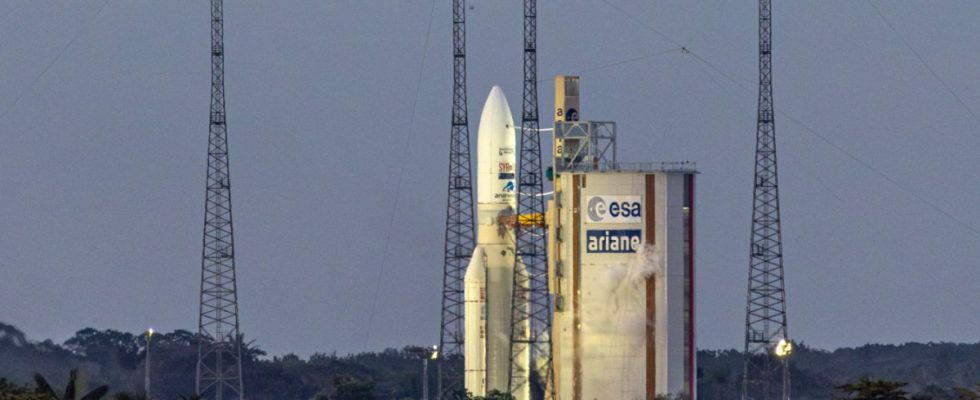A new German space strategy, but less money in the 2024 federal budget for the national space program – how does that work together? The Federal Ministry of Economics does not see such goals at risk despite the cuts. For the “implementation of the space strategy, we will optimally use the funding instruments available to us from the national space program (…)”, according to a statement to the SZ.
The ministry also refers to the higher German budget for the space agency Esa, which strengthens Germany’s role in European space travel. According to Esa, this is around 3.5 billion euros for 2023 to 2025, six percent more than in the previous period – inflation not taken into account. Germany is currently the largest contributor, ahead of France and Italy with around 3.2 and 3 billion euros respectively, although they have increased their budgets by 20 and 35 percent.
For the national space program, however, the federal government wants to spend a good 15 percent less in 2024, almost 314 million euros – because “large savings had to be made for the budget for the first time in years”. With the first space strategy since 2010, the government actually also wants to promote the increasing commercialization of the industry, i.e. young founders of the New Space scene. For example, there is talk of a “space innovation hub”. This costs money, which may not be there at all.
The Federal Space Commissioner Anna Christmann therefore wants to increasingly rely on investors from the economy: A new commercial market also offers “great opportunities for the German space ecosystem”. But it is also clear “that we have to find new ways to mobilize more private capital for European space travel,” she says.
Berlin wants to replace the “Ariane” rocket
She also confirms that Germany is committed “to a paradigm shift in the procurement of launch vehicles”, i.e. a successor system to the inefficient one Ariane-Rocket. “Through more competition (…) a cheaper access to space should be made possible.” This shows “our ambition to play a very active role in shaping European space travel in the coming years,” said Christmann.
On the other hand, there is also speculation that the German budget for the EU broadband satellite system Iris² could be significantly reduced from 189 million euros. The ministry does not deny this. “The possible effects of the cabinet decision on the individual programs are still open,” it says. As far as the role of New Space companies in Iris² is concerned, Economics Minister Robert Habeck wrote in a letter to EU Commissioner Thierry Breton “supported a strong role for start-ups and SMEs”.

